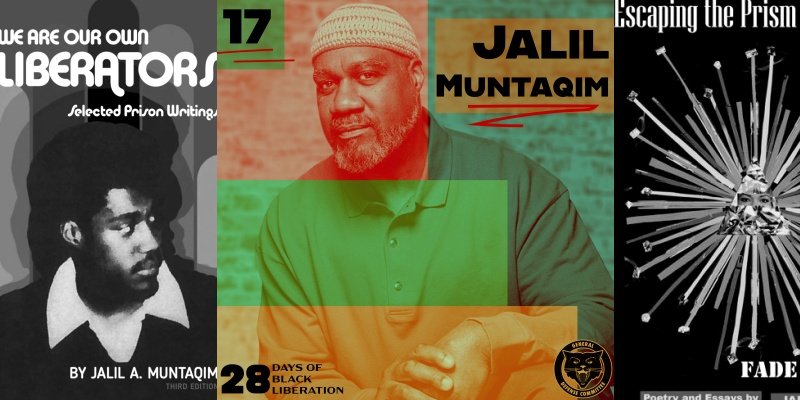Day 17 of the 28 Days of Black Liberation 2024 series
Jalil Muntaqim was born in 1951 in Oakland, CA and as a teenager joined the Black Panther Party. After the assassination of MLK he came to believe that armed resistance was the only way to achieve Black self-determination, and subsequently joined a subset of the BPP, the Black Liberation Army. In 1971 he was arrested and charged with the killing of two NYPD officers, the prosecution claiming the shootings were a retaliation for the murder of George Jackson, but Jackson’s death occurred three months after the NYPD officers were killed. He was among a rash of political prisoners from Black liberation movements.
While incarcerated, Muntaqim organized both inside and outside and published the books “We Are Our Own Liberators” and “Escaping the Prism…Fade to Black”. He served 49 years in prison and was eligible for parole beginning in 1993, but was denied 11 times until finally being released in 2020.
Muntaqim now describes himself as an evolutionary revolutionary, and believes in the internationalism of the struggle against U.S. Imperialism. He makes the case that as part of that imperialism, the U.S. has been engaged in the genocide of Black and Indigenous people for the last 400 years. It continues today through mass incarceration, penal slavery and police terror. Muntaqim writes, “Ultimately, the U.S will eventually find itself at war with itself, as the ideology of a free democratic society will be found to be a big lie.” He is a co-founder of the Jericho movement and is currently working on a campaign to build a People’s Senate.
Learn more:
The Real News Network: JALIL MUNTAQIM: THE TIME TO END PRISON SLAVERY IS NOW
Jalil Muntaqim: On the Black Liberation Army (PDF)
In the United States, the Black liberation struggle is the vanguard of the revolutionary class struggle. Black resistance to white supremacy has been the catalyst for nearly all critical social ruptures throughout american history. White workers choosing an alliance with the bosses instead of siding with the rest of the working class is the primary roadblock to revolutionary anti-capitalism in the US.
The GDC celebrates the Black liberation struggle and draws inspiration and lessons from its proud history in our struggle for the new world we are fighting for. In February we celebrate Black revolutionary culture, political prisoners, international figures and struggles, and moments in direct action that guide us in our continued, collective fight for liberation!

